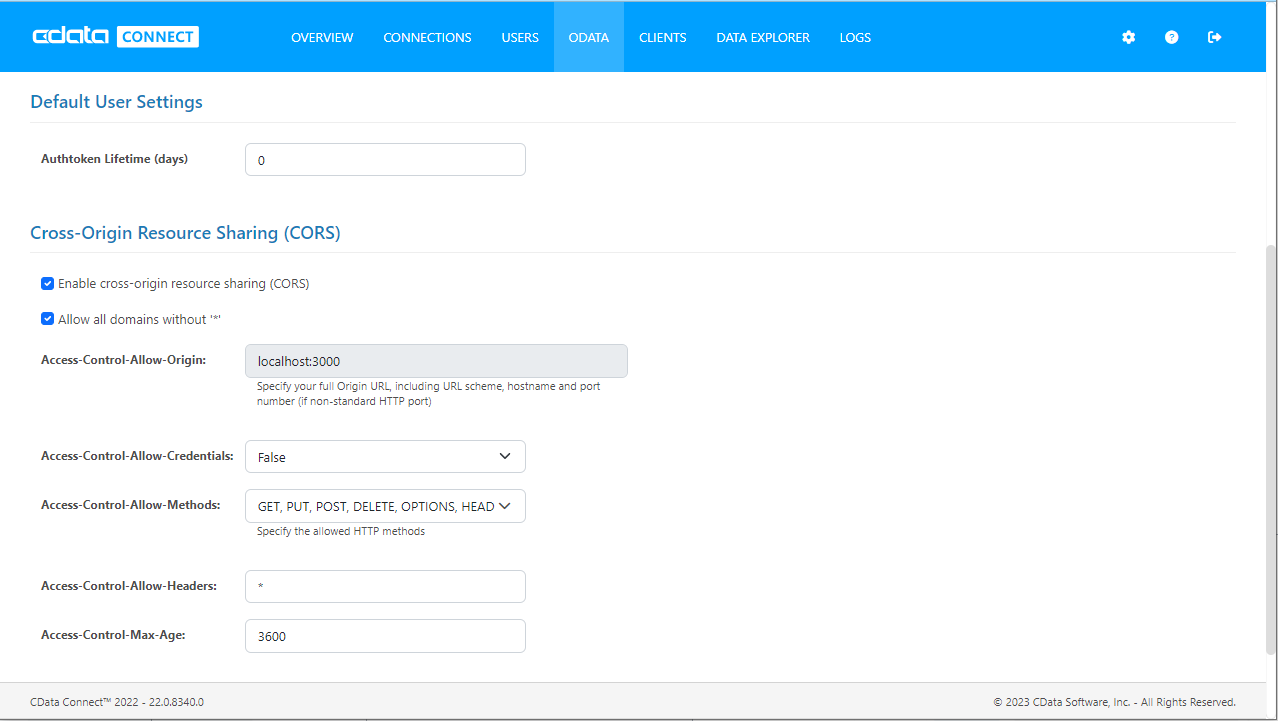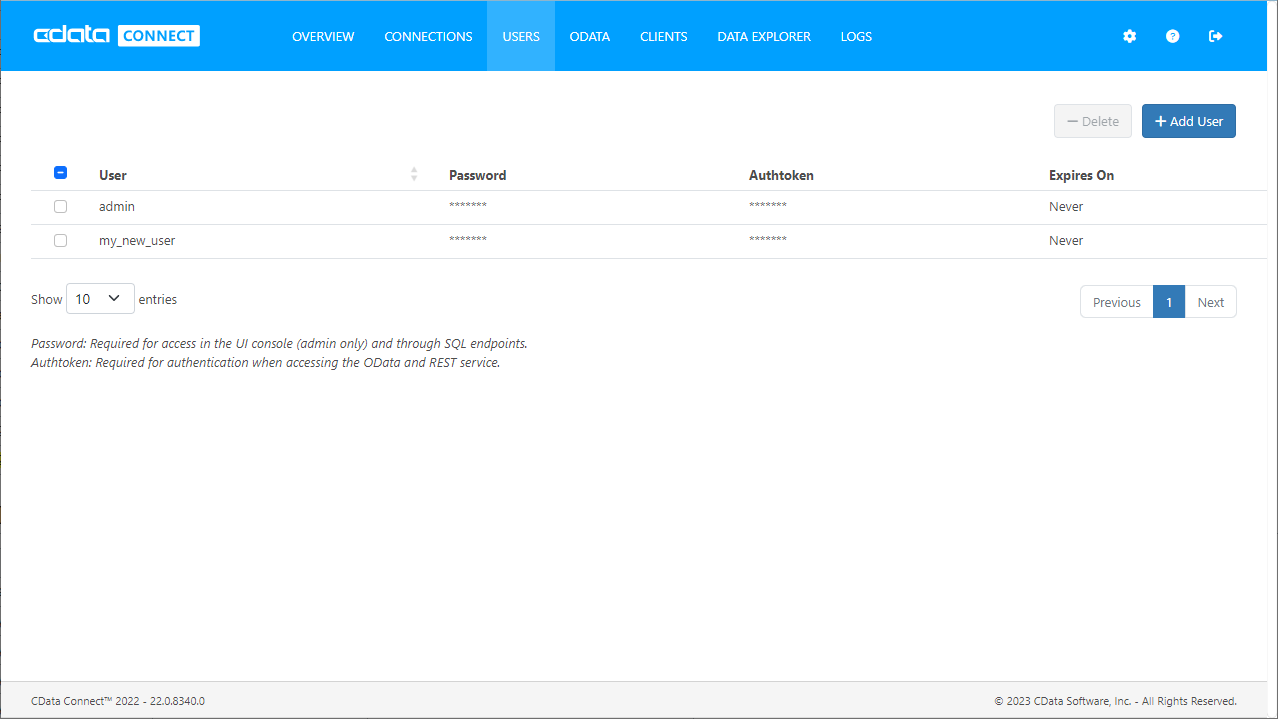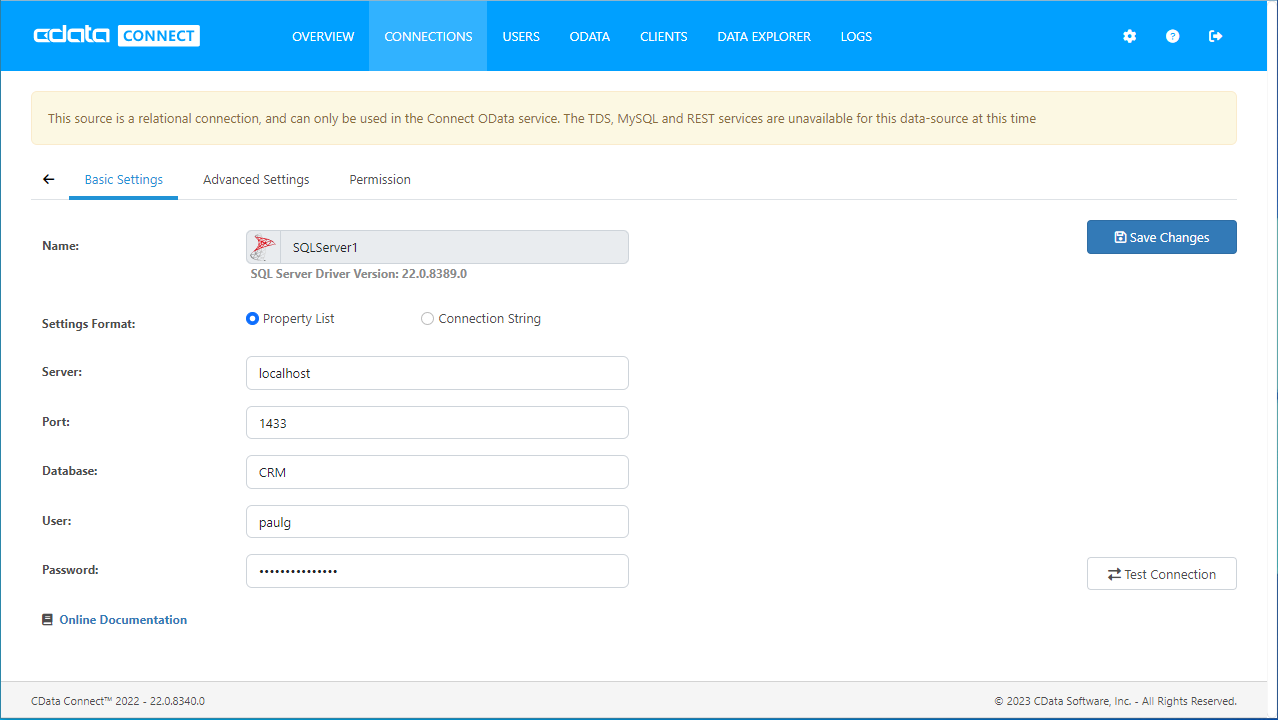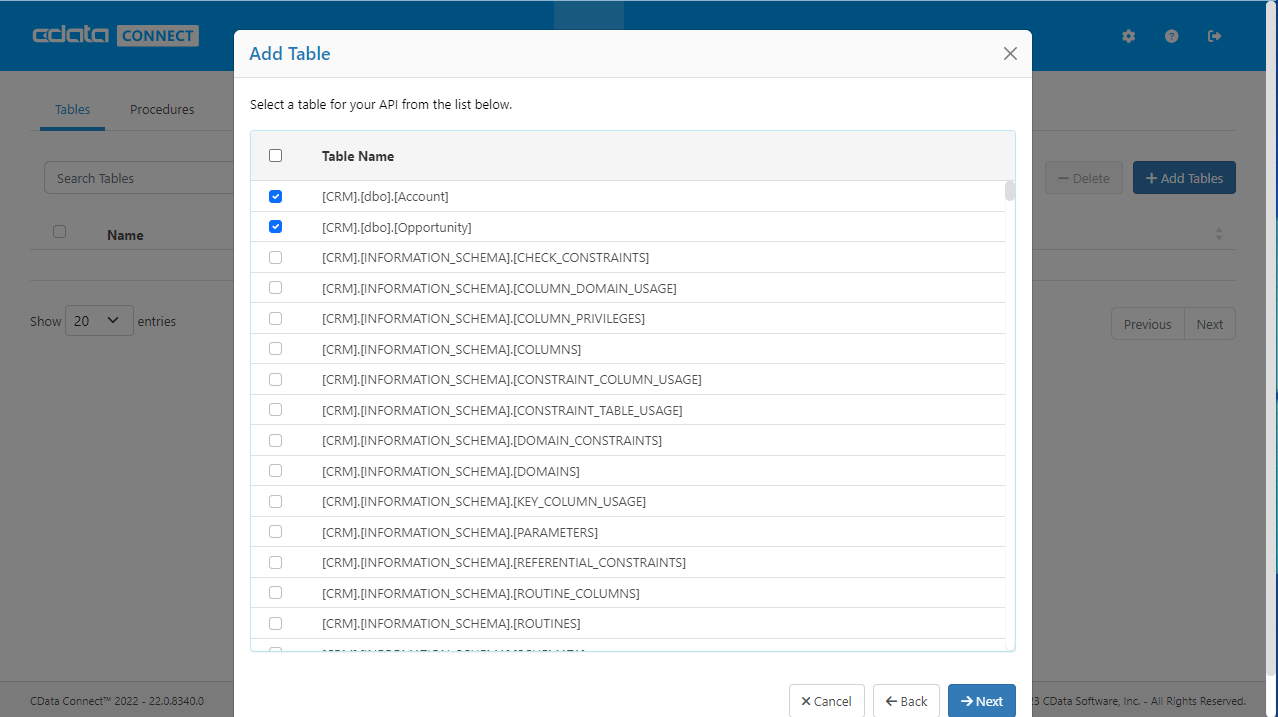Discover how a bimodal integration strategy can address the major data management challenges facing your organization today.
Get the Report →DataBind Wijmo Grid to Kafka Data
Provide real-time Kafka data to interactive controls.
The Connect Server enables you to use Web services to connect to and query Kafka data. This article details how to import an OData feed of Kafka data into Wijmo Grid.
Configuring Connect Server
To work with live Kafka data in Wijmo Grid, we need to connect to Kafka from Connect Server, provide user access to the new virtual database, and create OData endpoints for the Kafka data.
Add a Connect Server User
Create a User to connect to Kafka from Wijmo Grid through Connect Server.
- Click Users -> Add
-
Configure a User
![Creating a new user]()
-
Click Save Changes and make note of the Authtoken for the new user
![Connect Server users]()
Connect to Kafka from Connect Server
CData Connect Server uses a straightforward, point-and-click interface to connect to data sources and generate APIs.
-
Open Connect Server and click Connections
![Adding a connection]()
- Select "Kafka" from Available Data Sources
-
Enter the necessary authentication properties to connect to Kafka.
Set BootstrapServers and the Topic properties to specify the address of your Apache Kafka server, as well as the topic you would like to interact with.
Authorization Mechanisms
- SASL Plain: The User and Password properties should be specified. AuthScheme should be set to 'Plain'.
- SASL SSL: The User and Password properties should be specified. AuthScheme should be set to 'Scram'. UseSSL should be set to true.
- SSL: The SSLCert and SSLCertPassword properties should be specified. UseSSL should be set to true.
- Kerberos: The User and Password properties should be specified. AuthScheme should be set to 'Kerberos'.
You may be required to trust the server certificate. In such cases, specify the TrustStorePath and the TrustStorePassword if necessary.
![Configuring a connection (SQL Server is shown).]()
- Click Save Changes
- Click Privileges -> Add and add the new user (or an existing user) with the appropriate permissions (SELECT is all that is required for Reveal).
Add Kafka OData Endpoints in Connect Server
After connecting to Kafka, create OData Endpoints for the desired table(s).
- Click OData -> Tables -> Add Tables
- Select the Kafka database
-
Select the table(s) you wish to work with and click Next
![Selecting a Table (SQL Server is shown)]()
- (Optional) Edit the resource to select specific fields and more
- Save the settings
(Optional) Configure Cross-Origin Resource Sharing (CORS)
When accessing and connecting to multiple domains from an application such as Ajax, there is a possibility of violating the limitations of cross-site scripting. In that case, configure the CORS settings in OData -> Settings.
- Enable cross-origin resource sharing (CORS): ON
- Allow all domains without '*': ON
- Access-Control-Allow-Methods: GET, PUT, POST, OPTIONS
- Access-Control-Allow-Headers: Authorization
Save the changes to the settings.

Connect to Kafka Data using Wijmo Grid
Create a Real-Time Grid
Follow the steps below to consume Kafka data from the Wijmo JavaScript controls:
-
Load the required Wijmo, jQuery, and Knockout libraries:
<script src="http://code.jquery.com/jquery-1.11.1.min.js"></script> <script src="http://code.jquery.com/ui/1.11.0/jquery-ui.min.js"></script> <!--Theme--> <link href="http://cdn.wijmo.com/themes/aristo/jquery-wijmo.css" rel="stylesheet" type="text/css"> <!--Wijmo Widgets CSS--> <link href="http://cdn.wijmo.com/jquery.wijmo-pro.all.3.20161.90.min.css" rel="stylesheet" type="text/css"> <!--Wijmo Widgets JavaScript--> <script src="http://cdn.wijmo.com/jquery.wijmo-open.all.3.20161.90.min.js"></script> <script src="http://cdn.wijmo.com/jquery.wijmo-pro.all.3.20161.90.min.js"></script> <script src="http://cdn.wijmo.com/interop/wijmo.data.ajax.3.20161.90.js"></script> <!--Knockout JS Library--> <!-- Both of the links below can work --> <script src="http://cdn.wijmo.com/wijmo/external/knockout-2.2.0.js"></script> <!--<script src="http://cdn.wijmo.com/amd-js/3.20161.90/knockout-3.1.0.js"></script>--> <!--Wijmo Knockout Integration Library--> <script src="http://cdn.wijmo.com/interop/knockout.wijmo.3.20161.90.js"></script>
-
Create a ViewModel and connect to it using the ODataView. You will need to replace the placeholder values for
the URL of the API Server, an API Server user, and the authtoken for that user.
<script id="scriptInit"> $.support.cors = true; var viewModel; function ViewModel() { var sampletable_1View = new wijmo.data.ODataView("http://MyServer:MyPort/api.rsc/SampleTable_1", { ajax: { dataType: "jsonp", username: "MyUser", password: "MyAuthtoken", data: { "$inlinecount": null } }, pageSize: 10 }); sampletable_1View.refresh(); sampletable_1View.nextPage(); this.sampletable_1 = sampletable_1View; this.prevPage = function () {sampletable_1View.prevPage();}; this.nextPage = function () {sampletable_1View.nextPage();}; } $(document).ready(function () { viewModel = new ViewModel(); ko.applyBindings(viewModel, $(".container").get(0)); }); </script> -
DataBind: Below is a simple table with some paging buttons, which you can paste into the body section of your markup.
<h2>Connect to Live Kafka Data in Real Time</h2> <h3>SampleTable_1</h3> <div> <button title="previous page" class="pagebuttons" data-bind="click: prevPage, button: {}"> <span class="ui-icon ui-icon-seek-prev" /> </button> <button title="next page" class="pagebuttons" data-bind="click: nextPage, button: {}"> <span class="ui-icon ui-icon-seek-next" /> </button> </div> <table id="demo-grid" data-bind="wijgrid: { data: sampletable_1, showFilter: true, allowPaging: true, pagerSettings: { position: 'none'}, columnsAutogenerationMode: 'append', }" > </table>
At this point, you may be prompted to re-enter the username and authtoken. After doing so, a resulting table
or grid should appear, as seen below. You can filter and sort through pages of Kafka data.

Free Trial & More Information
If you are interested in connecting to your Kafka data (or data from any of our other supported data sources) from Wijmo Grid, sign up for a free trial of CData Connect Server today! For more information on Connect Server and to see what other data sources we support, refer to our CData Connect page.










